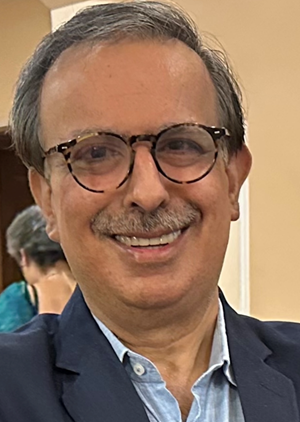
The School of International Studies (SIS) is a premier institution for the study of International Relations and Area Studies in the country. Established in 1955, SIS is currently celebrating its seventieth anniversary this year. In the seven decades of its existence, SIS has made a pioneering contribution to promoting the study of International Relations and Area Studies in India and advancing knowledge and understanding of international affairs through theoretical and inter-disciplinary lenses.
History: Of all the Schools of the University, SIS lays claim to the longest history as it was established in 1955 as the Indian School of International Studies (ISIS). The need for an institution devoted to the study of international and global developments was felt in the early post-independence years as India prepared to define and assert its position in the global system. The Indian Council of World Affairs (ICWA), which traced its roots back to 1943, was then the only institution in the country concerned with analysing foreign affairs and it recognized the need to foster and promote the study and interpretation of global political, social and economic developments. A committee headed by Pandit Hriday Nath Kunzru recommended the setting up of the ISIS, which was established in October 1955, with Dr A. Appadorai as its first Director. While it was affiliated with the University of Delhi in its initial years, ISIS became a part of the Jawaharlal Nehru University (JNU) in June 1970 as the School of International Studies (SIS).
Academic Programmes: In its early years, the only degree awarded by the School was the Ph.D. Soon after the School became a part of JNU, the M.Phil. curriculum was introduced in 1971-72. In the following academic year (1973-74), the School started offering a two-year M.A. programme in Politics (Specialization in International Relations). In 1995-96, a new and unique M.A. programme in Economics (Specialization in World Economy) was introduced by the erstwhile Economics Division of the Centre for Studies in Diplomacy, International Law & Economics – now the Centre for the Study of the World Economy (formerly Centre for International Trade and Development). A third M.A. programme in International Relations and Area Studies was introduced in the academic year 2016-17, with a specialized focus on Area Studies. A fourth M.A. programme in International Relations - West Asian Studies has been introduced in the academic year 2025-26 by the Centre for West Asian Studies.
Each of these courses has attracted interest from students all over the country and abroad and every year, the admission process has become increasingly competitive. The M.Phil. programme was discontinued in the year 2021; in a period of five decades, a total of 4,707 M.Phil. degrees were awarded in SIS. As of 2024, a staggering 2,053 scholars have been awarded a Ph.D degree in SIS.
Programmes of Study: The 14 centres of SIS include five functional centres and nine Area Studies centres:
Functional Centres:
-
* Centre for Comparative Politics and Political Theory
-
* Centre for International Legal Studies
-
* Centre for International Politics, Organization & Disarmament
-
* Centre for the Study of the World Economy (formerly Centre for International Trade and Development)
-
* Chattarpati Shivaji Maharaj Centre for Security & Strategic Studies
Area Studies Centres:
-
* Center for African Studies
-
* Centre for the Study of the Americas (formerly Centre for Canadian, US and Latin American Studies)
-
* Centre for East Asian Studies
-
* Centre for European Studies
-
* Centre for Indo-Pacific Studies
-
* Centre for Inner Asian Studies
-
* Centre for Russian and Central Asian Studies
-
* Centre for South Asian Studies
-
* Center for West Asian Studies
Additionally, there are two cross-cutting thematic study programmes:
-
* Human Rights Programme (Integrated with the Centre for International Legal Studies)
-
* Energy Studies Programme (Integrated with the Centre for the Study of the World Economy)
Faculty: The backbone of SIS is its faculty, whose profiles can be viewed under the "Faculty" tab. Faculty members of the School have contributed to the advancement and dissemination of knowledge in International Studies, not only through their teaching and research supervision but also through extensive publications and engagement with public policy. Besides, the School faculty are sought after as consultants to various government agencies as well as non-government organisations for their specialised expertise. They are also audible and visible in radio discussions and television programmes on subjects relating to international affairs.
Activities: The School as well as its Centres hold national and international seminars on a regular basis on important aspects of area studies and international relations. Annual International Studies Conferences have been organized by SIS on a grand scale, bringing together the International Relations community (including academics as well as practitioners) across the country:
The School also organizes a series of extension lectures every year – the "Hriday Nath Kunzru Memorial (Extension) Lectures on International Relations" – on a contemporary theme. The School has its own YouTube Channel and it has a robust presence on the social media
Journal: The School publishes a quarterly journal by the name of International Studies. Founded in July 1959, this journal has acquired an international standing as the leading Indian academic journal in the field. It publishes original research articles on contemporary issues and problems as well as theoretical readings. Being a referred journal, it attracts contributions not only from SIS faculty and other Indian universities/research institutions but also from scholars all over the world.
